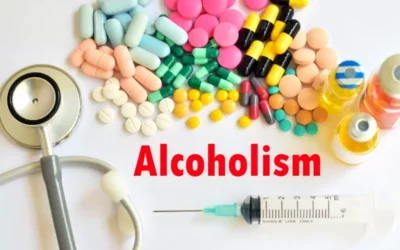Ethanol abuse doesn’t result in anything positive, especially when it’s combined with ethanol resistance. People who have a tolerance to alcohol drink more of it, and sometimes the amounts they consume can reach a deadly level. The risk of developing an ethanol dependence is also increased, and the medications which are normally recommended for the treatment of alcoholism become ineffective. A resilience to booze can also cause damage to the liver, brain, and heart, and it can impair some cognitive functions in the brain (performing tasks, understanding).
Side Effects of Alcohol Tolerance

If you usually handle alcohol fine, remember that many factors can influence your tolerance on a day-by-day basis! Factors such as when you last ate, the type and amount of food you had, when you last exercised, and the medications you’re currently taking can all alter alcohol’s effects. On the other hand, it would be best for people with alcohol intolerance to stay away from alcohol completely, as this is the only way to avoid symptoms and side effects. Alcohol tolerance is often indicative of an underlying issue and could be a prelude to more serious alcohol-related problems. If you’ve been wondering how to lower alcohol tolerance, here are our tips for managing and reducing your alcohol tolerance levels. The best way to live with this condition is to avoid alcohol as much as possible.
Why abstinence if your goal is to moderate your use?
Many people don’t always know how much alcohol they drink and whether their drinking could have any impact on their health. It’s really important to recognise that tolerance to the short-term effects does not mean your health risks are lower. In fact, you could be at higher risk because you may not recognise how much you’re drinking. It is important to recognize that tolerance is not the same thing as dependence or addiction. Tolerance means you no longer respond to a drug in the same way you did when you first started taking it.
How Long It Takes To Change A Functional Tolerance
It is your body’s response to alcohol based on how much is in your system and its efficiency at eliminating alcohol. When you drink alcohol for an extended period, you may discover that you need to drink more alcohol to feel the same effects. This phenomenon is known as alcohol tolerance and can make one think they’re immune to alcohol or less susceptible to the harms of alcohol use.
“Alcohol also decreases cellular efficiency throughout the entire body, making our vital organs function less efficiently, leading to chronic disease. Plus, it’s a depressant affecting behavior and making it difficult to think clearly and make executive functions,” Dr. Schwartz explains. Tolerance does not develop the same way for everybody and for every substance. Some drugs, like benzodiazepines, how to increase alcohol tolerance are highly addictive, and tolerance can be expected to develop within just the first few days of daily use. Other drugs, such as antidepressants, are not known to be habit-forming, and people do not generally develop a tolerance to them. That means they will continue to respond in the same way to the same amount of antidepressant no matter how long they take the medication.
The Difference Between Alcohol Tolerance And Alcohol Sensitivity
- Addiction Resource is not a healthcare provider, nor does it claim to offer sound medical advice to anyone.
- Your overall health and physical condition may also play a role in your building alcohol tolerance.
- Even if we handled alcohol well in early adulthood, this can change as we age.
- Thinking about the price of getting sick can certainly help meet Dr. Schwartz’s recommendation.
- People of East Asian descent are more likely to have the inherited genetic mutation that causes alcohol intolerance, so they develop the condition at higher rates.
ADH is our best defense against the extremely toxic effects non-metabolized ethanol produces on our cardiac and nervous systems. People who use slower variants of this enzyme are more likely to develop a resilience to booze and a dependence. As a rule of thumb, our bodies will metabolize one standard drink in one hour. Those who have no ADH cannot metabolize ethanol easily, so they manifest the symptoms faster than others.
How Does Increased Alcohol Tolerance Affect a Person?
Why Some People Have A Higher Alcohol Tolerance Than Others – HuffPost
Why Some People Have A Higher Alcohol Tolerance Than Others.
Posted: Thu, 25 Jul 2019 07:00:00 GMT [source]